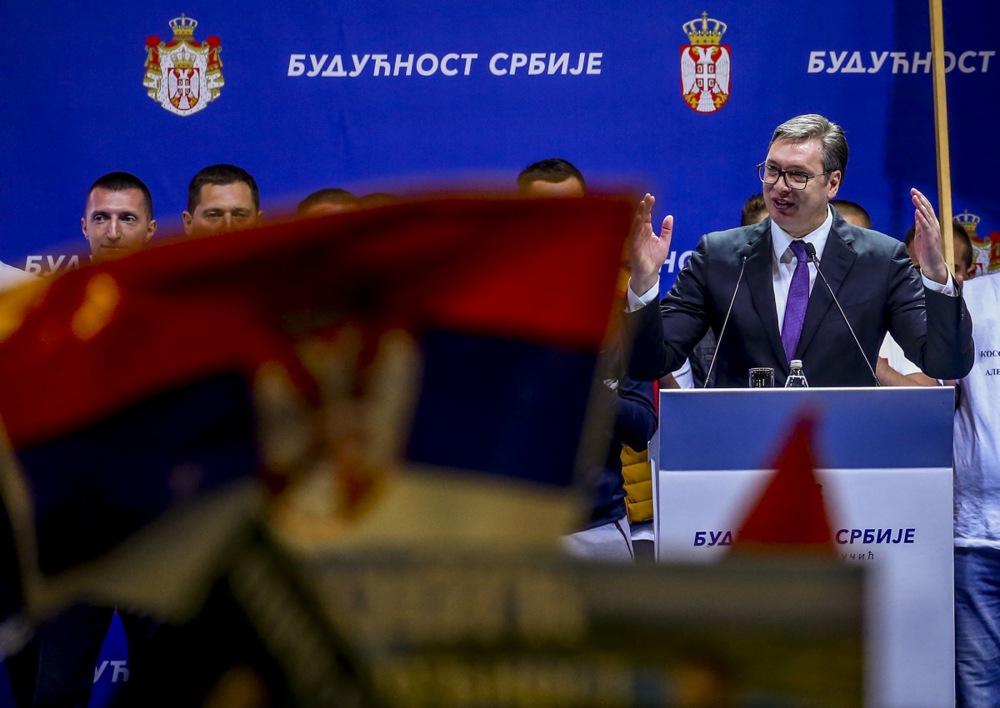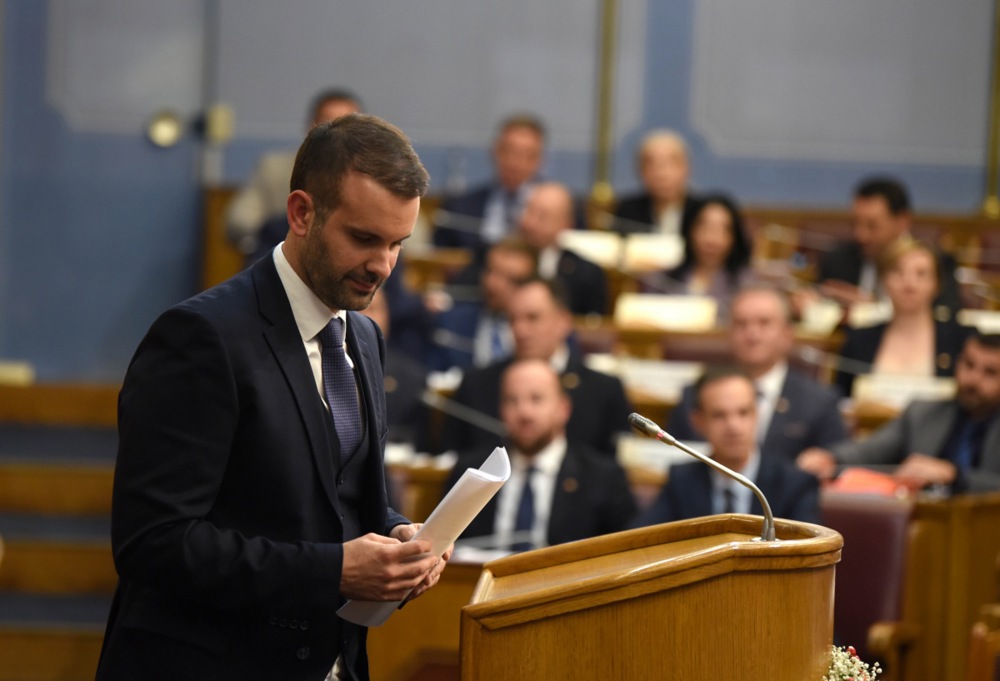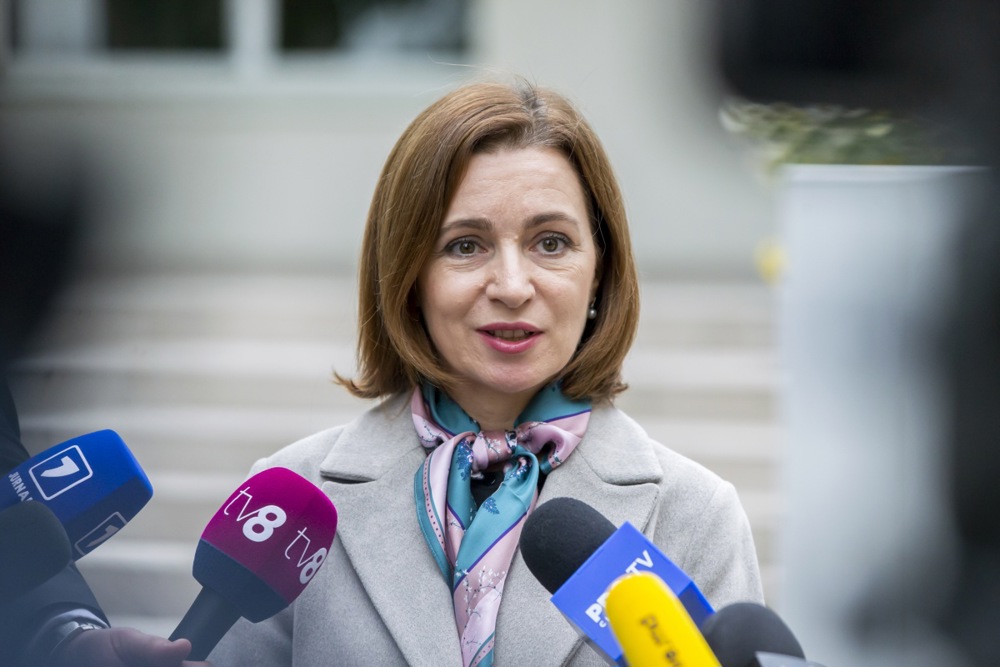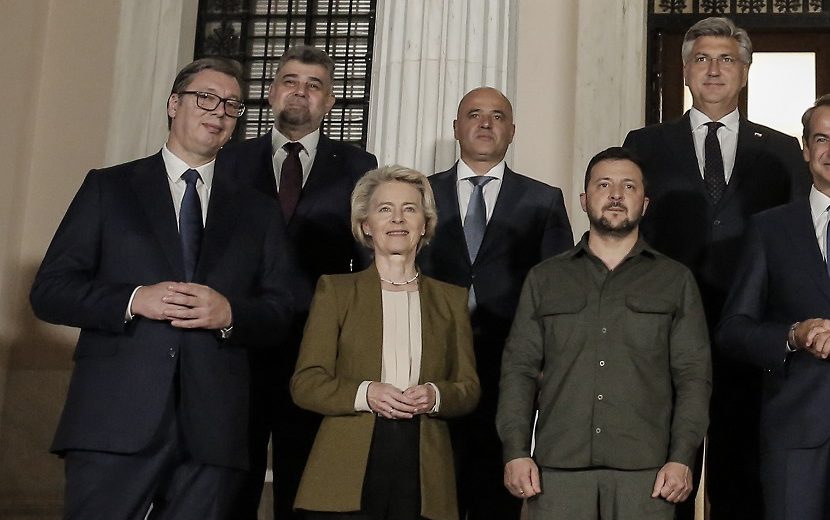A poor performance by President Aleksandar Vučić’s Serbian Progressive Party in December’s elections could make the government even more dependent on its pro-Russia junior partner, it is claimed.
Vučić’s party, which has a minority in parliament, currently governs with the support of the pro-Moscow Socialist Party of Serbia (SPS). If Vučić loses more seats, he could end up relying more heavily on the SPS, giving the party more influence in pushing Serbia closer to Russia.
“A strong opposition performance that leaves Vučić in power will make him more dependent on the pro-Russian SPS,” says Mihaela Curca, a junior researcher at the Centre for Conflict Prevention and Early Warning in Bucharest.
Vučić dissolved Parliament and called elections for 17 December, possibly to distract from weekly protests that have followed two mass shootings in May.
He faces uncomfortable questions about Serbia’s involvement in arming fighters who engaged in a violent September shootout with police in northern Kosovo.
The Serbian Progressive Party (SNS) lost its absolute majority in the last elections in 2022, where it won 43.5 per cent of votes cast. The Russia-friendly SPS, with 11.6 per cent of the votes, emerged as a kingmaker.
Serbia and Russia have grown closer since Russia’s invasion of Ukraine.
Vučić has refused to introduce sanctions against Russia, while Moscow has recruited hundreds of Serbs to replenish its army in Ukraine.
Moscow “supports Serbia’s claims over Kosovo”, Curca notes.
An estimated 200,000 Russians have moved to Serbia since the start of the war, where unlike elsewhere in Europe they do not require a visa. This has made Serbia one of the chief destinations for Russians since the war began.
Murals reading “Death to Ukraine” have appeared in Belgrade. Others hail successes by the Russian army and Wagner Group.
Serbia’s most profitable country, oil company Nafta industrija Srbije, is majority-owned by Russia’s Gazprom.
Serbia’s pro-Russia intelligence chief Aleksandar Vulin, sanctioned by the US in July, stepped down after elections were called, saying he did not want his sanctions to be a political distraction to Vučić.
However, “Putin has more allies in the government–including Vučić, (foreign minister and SPS leader) Ivica Dačić and (far-right Serbian Radical Party head) Vojislav Šešelj,” says Ivana Stradner, a research fellow at the Foundation for the Defence of Democracies in Washington DC.
Putin “needs the Balkans to use as a bargaining chip against the West, to sow chaos in the region and negotiate with the West if they don’t want conflicts to escalate,” she adds.
Some believe elections in Serbia, even as it seeks EU membership, are increasingly elections in name only.
Vučić may want greater parliamentary representation by the SPS to cushion his relationship with Russia, and give him leverage against Brussels and Washington.
“I don’t think this is a genuinely competitive environment. I at this point consider Serbia as a borderline autocratic regime,” says Jasmin Mujanović, author of a book on democracy in the Balkans.
But “there is the question of to what extent Vučić might deem it desirable to bring in different kinds of actors into the governing coalition, in terms of how he wants to position himself versus the EU and the United States,” he adds.
Vučić may only want “to keep Serbia on a long and unending EU admission path,” Stradner says.
He “only needs the EU to bring in EU aid that helps his political survival,” but does not want to “join an organisation that would force him to fortify the rule of law”, she adds.
This coalition will likely include Dačić and the extreme right, who gained a significant foothold in previous elections.
“I think it is likely we will see those extreme right parties do quite well,” says Mujanović.
As far as other opposition parties, such as the pro-EU Forward to Europe (which currently has 15 seats) and the right-wing National democratic Alternative (with 14), “the opposition is just coming together now,” says Massimo Moratti, a Belgrade-based democracy researcher.
These opposition parties “hope for a transitional government, but they might have missed the great chance offered to them by the protests this spring and summer,” he says.
However, “the fragmented nature of the opposition parties seems to undermine their ability to present a formidable challenge to Vučić”, says a former government minister who does not want to be quoted by name.
Ultimately, Serbia’s snap elections are “between Vučić and Vučić,” says Stradner.
They “also show that the 90s politics is back,” with Vučić undermining pro-Western political opposition while strengthening far-right Serbian groups to position himself as a moderate leader for the West, she adds.
“This is Milošević’s playbook,” says Stradner.





